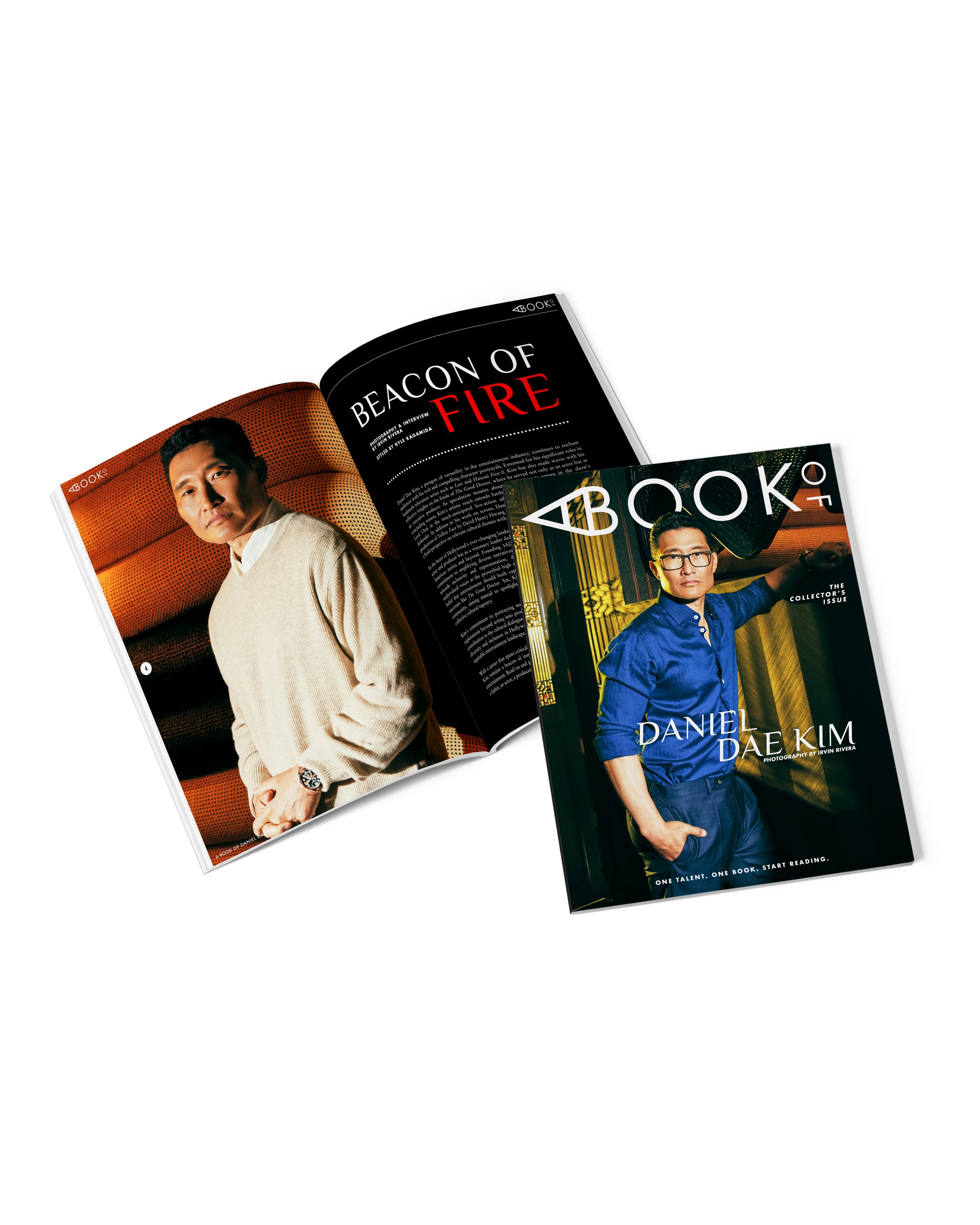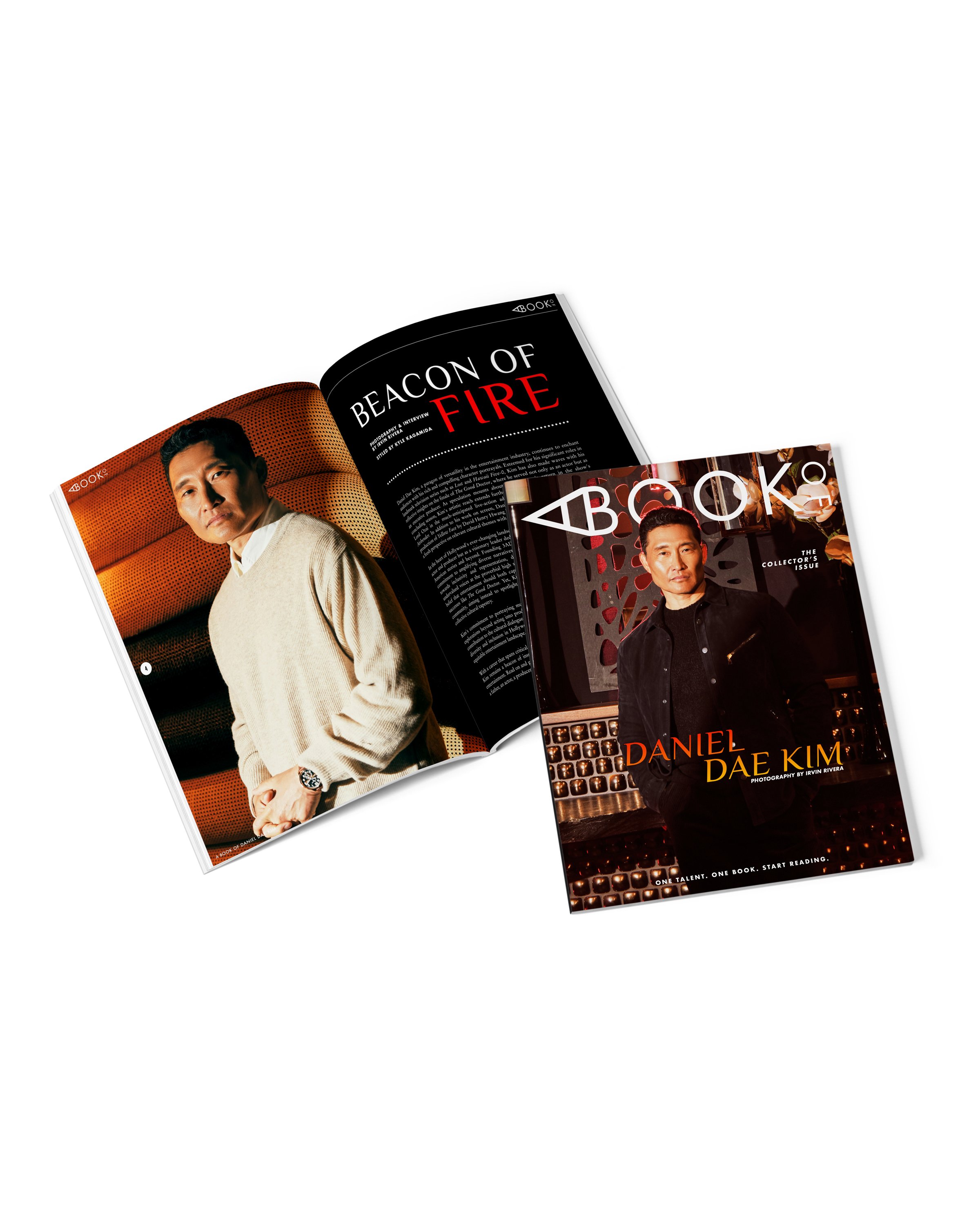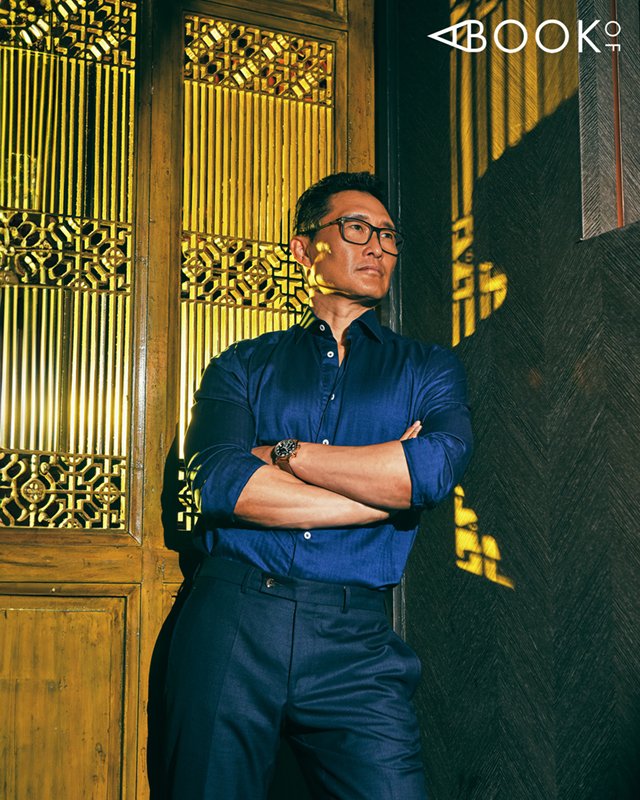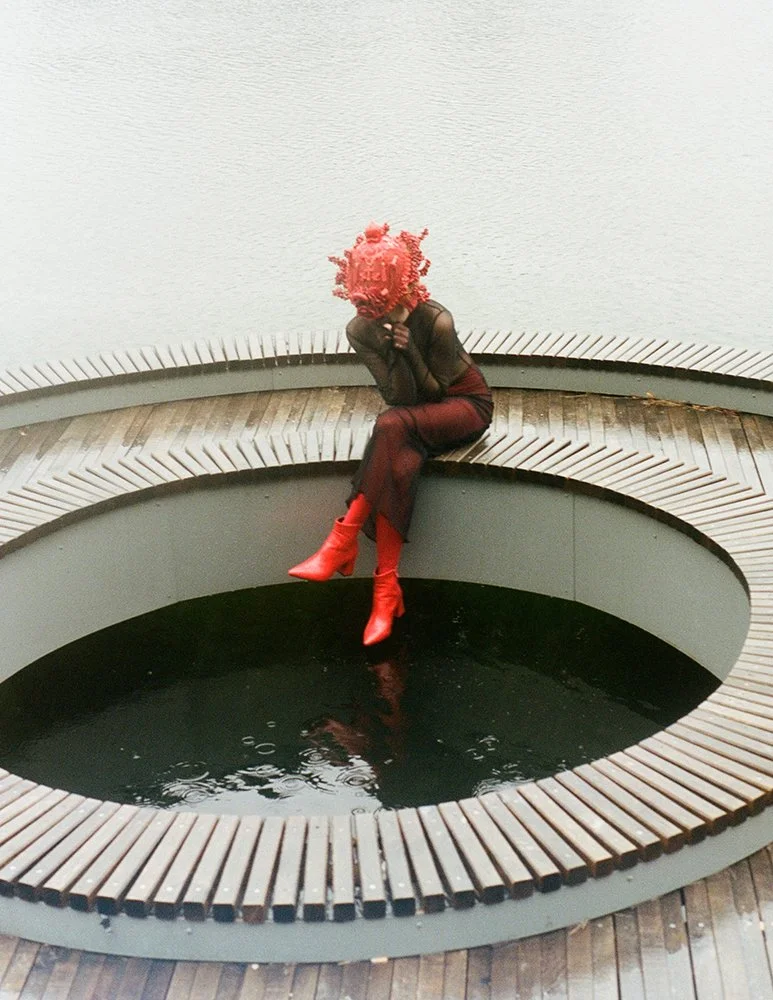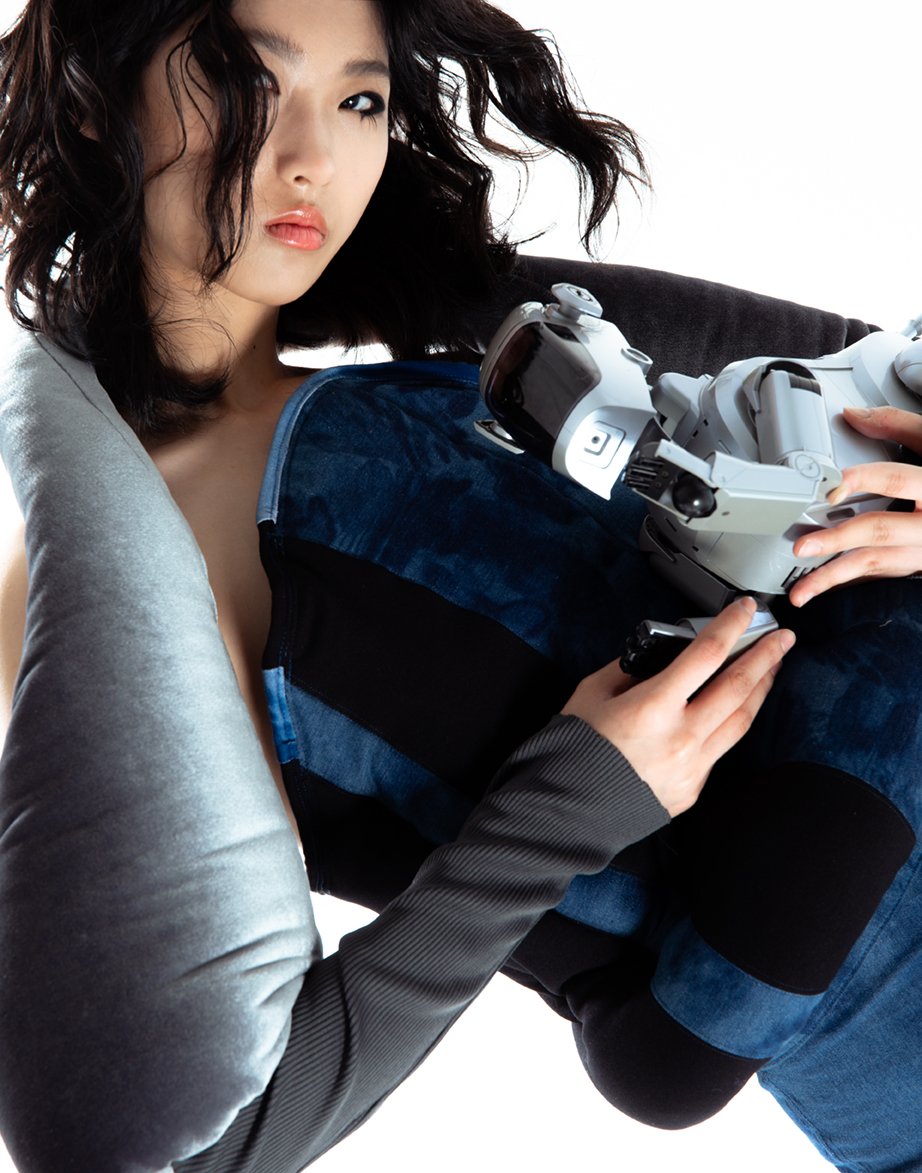DANIEL DAE KIM: BEACON OF FIRE [IN PRINT]
BY IRVIN RIVERA
PHOTOGRAPHER: IRVIN RIVERA, FASHION STYLING: KYLE KAGAMIDA, GROOMING: SUZIE K., FASHION DIRECTOR: ANDREW PHILIP NGUYEN, ART DIRECTOR: PHIL LIMPRASERTWONG, PHOTOS ASST: ROBERT CALHOUN, LOCATION: DA LAT ROSE AT CRUSTACEAN BEVERLY HILLS
Shirt & Pants: JACK VICTOR, Shoes: ALLEN EDMONDS
Daniel Dae Kim, a paragon of versatility in the entertainment industry, continues to enchant audiences with his rich and compelling character portrayals. Esteemed for his significant roles in landmark television series such as Lost and Hawaii Five-0, Kim has also made waves with his reflective insights on the finale of The Good Doctor, where he served not only as an actor but as an executive producer. As speculation mounts about his character's return in the show's concluding season, Kim's artistic reach extends further with his riveting performance as Fire Lord Ozai in the much-anticipated live-action adaptation of Netflix’s Avatar: The Last Airbender. In addition to his work on screen, Daniel Dae Kim's return to Broadway in the production of Yellow Face by David Henry Hwang is a venture into the comedic genre, offering a fresh perspective on relevant cultural themes with a timeless appeal.
In the heart of Hollywood's ever-changing landscape, Daniel Dae Kim stands out not just as an actor and producer but as a visionary leader dedicated to reshaping the narrative around Asian American stories and beyond. Founding 3AD, a production company that underscores his commitment to amplifying diverse narratives within the industry, Kim ignited a movement towards inclusivity and representation, drawing inspiration from the overlooked and undervalued voices at the proverbial high school party of life. His mission, grounded in the belief that entertainment should both captivate and challenge, has already borne fruit with successes like The Good Doctor. Yet, Kim emphasizes, 3AD's scope transcends any single community, aiming instead to spotlight a mosaic of untold stories, thereby enriching our collective cultural tapestry.
How's the Sunrise House Event at Sundance? How did it go?
They were really fantastic. We had some really informative panels with some industry leaders from every sector. We had a great fireside chat with Steve Yeun. And we had another one with Lucy Liu and that seemed good.
The Fireside Chats seemed to go really well. The feedback was really good. We threw some banging parties. And so you know, it was a little bit of substance and a little bit of fun.
And it's really great and inspiring that you guys are doing this, because I'm seeing a lot more mainstream visibility, especially in Sundance as well for AAPI.
Yes.
It's really cool.
What's funny is that AAPI filmmakers have been on it for a while at Sundance, they just have never had a home, you know, somewhere where they can be celebrated and their achievements can be spotlighted. And also, I think there's just a broader movement toward multiculturalism. And that's an emphasis of our house as well. It's not just for the AAPI community, we took specific efforts to do outreach to other communities of color and I think that's really important.
That's amazing. Especially how you guys are extending your arms to the communities, building and growing it.
That's what it's about, that's what it's about. We had a dinner one night where we invited all the other major communities of color, and we broke bread together, we talked and hopefully, that's just the beginning of broader initiatives among our houses.
How did you approach the complex character of Fire Lord Ozai?
As a dad. You know, I have two kids and just thinking about the ways that he's actually in his own way trying to guide his children to their best future is what I kind of keyed into. We may make mistakes as fathers, some intentional, some unintentional, but it doesn't mean... I don't think Ozai doesn't love his children. I think he does, but his love comes out in ways very different from the way I express it.
The intention is there. It's just expressed in its own ways.
Yes. And, they can be damaging. They are damaging- physically, in the case of Zuko, but we damage our children without knowing it. We've been damaged by our parents without them knowing it. It's part of the cycle of life and that's kind of how I found Ozai's humanity.
Now, speaking of Zuko and Iroh, and Ozai's family dynamics. How were you all able to explore this complex family relationship on screen?
One of the ways that we did it was to just get to know one another. I've known Paul Sun-Hyung Lee for a while, and I'm a big fan of his work. And so there was a natural bond between us right from the start, and I really enjoyed seeing Lizzie's work as Azula, and watching Dallas' work as Zuko was fantastic, and just seeing what they brought to the table allowed me to kind of see who my children were. Because we were coming together as actors, and we were seeing what each actor brought to the table. But I was able to use that to inform my relationship with the children. What are they good at? What do they need help with? Where do we want to guide their future? Where do I want to guide their strengths and their weaknesses? So things like that, and a little off-camera bonding was really important.
You played pivotal roles that defied stereotypes. How important is it for you to portray complex characters that go beyond just one archetype?
It's just interesting as an actor, you know. I never want to be doing one thing forever, I've been in situations where I played a character for six years, seven years, but, in the case of Lost, I'm so grateful that there was so much growth in that character. So it never became boring. But if I'm lucky enough to have the opportunity to work a lot, I want to use those opportunities to explore things I'm interested in as an artist. And part of that is just kind of finding a variety of kinds of people to play with.
And you've produced, you've acted, and you've explored all these other avenues in terms of creating art. What other things do you want to explore in the near future, aside from those realms?
Producing has been really interesting, the process of creation of television and film and theater has been something that has intrigued me for a while. Yes, I think, to have a holistic view of how one makes entertainment and how it affects us as a society and vice versa, I think it's a really interesting question. How entertainment reflects the cultures of our time and at the same time, pushes it in one direction or another.
What's the most valuable piece of advice you received from someone either in the industry or out of the industry that you always still carry with you?
That there's no room in show business for you, you have to make room. I keep that in mind because it encourages me to think that nothing is a given, nothing should be taken for granted and anything that I'm looking to do will probably require work because no one is asking me to do it.
What's the one thing people will remember you after the credits roll? What do you want to be remembered as?
First and foremost, a good actor, because that's my life's passion, and I would say, second of all, someone who tried to use his platform to bring us together as a society.
What kind of book will Daniel Dae Kim be?
Well, I will tell you that I'm working on a project right now based on a book by Chang-Rae Lee, his first major novel - Native Speaker that came out in the 80s. And I have a real connection to that novel, because Chang-Rae and I are of the same generation as Korean Americans, and a lot of the issues he wrestles with in that book are issues that I've wrestled with my whole life. It's a beautifully written book. His prose is so eloquent and poetic. And it was the first time I'd ever read a book that kind of felt like he was talking to me.




